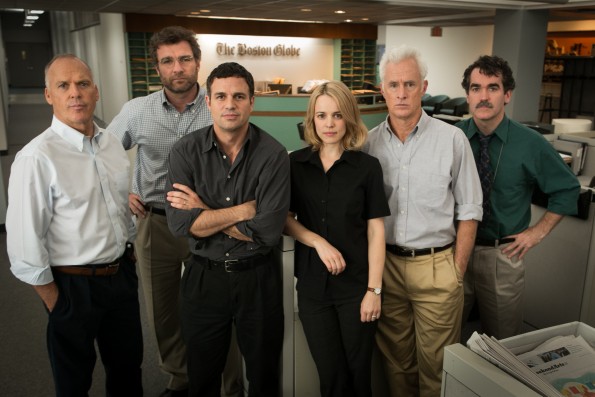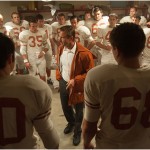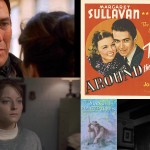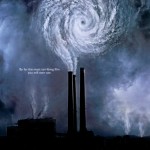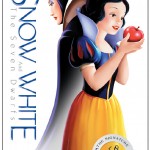At least two reviews of Spotlight (★★★★½) have already made the comparison to All the President’s Men, which is extremely apt considering the way both films dramatize the process of investigate journalism. I think another equally apt comparison would be Michael Mann’s The Insider, especially considering the way many sources are reluctant to talk to the investigate journalists not only because they feel as if they would be betraying their community but also because they would be violating the confidentiality agreements they signed.
Since those confidentiality agreements are invoked as a legal reason for many sources to remain silent, the agreements turn out to be one of the biggest obstacles for the Boston Globe‘s Spotlight team as they conduct their 2001 investigation regarding the allegations that seventy priests in the Boston Archdiocese molested children, and Cardinal Law knew and reassigned those priests to new parishes rather than remove them from the priesthood. The investigation is instigated by the new editor of the Globe Marty Baron (Liev Schreiber) who, worried that the internet is reducing readership, orders the usually independent Spotlight team to investigate the possibility that Cardinal Law knew about one abusive priest, a story highly relevant to the people of Boston.
The subject of child molestation should make for a difficult film to watch, and director Tom McCarthy delivers a somber, sobering film which denies any character (or the viewer) the feeling of moral superiority. When one reporter voices the outrage and disgust toward the Catholic Church that most viewers will probably be thinking, the head of the Spotlight team Walter “Robby” Robinson (Michael Keaton) has a Schindler moment which effectively and powerfully rains on any moral superiority parade. As a Catholic movie reviewer who is also an employee of a Catholic Church, I am grateful not only for a film that highlights a maleficent crime which has plagued the Church, but I also think McCarthy deserves full credit for the restrained and unembellished nature with which he tells the story, a restraint that makes the truth all the more devastating.
While I think McCarthy did a great job with Spotlight, there is one scene when the filmmakers’ very justifiable outrage gets the better of them. When the reporters are speaking to an embittered ex-priest who gives them the shocking figure that 6% of priests have molested children, he also claims that celibacy is a direct cause of pedophilia. Never mind that a such a claim is grossly insulting to any person who has chosen to live a celibate life, clergy or not, but for that sort of causation/correlation claim, one would need a figure colossally higher than 6%, even though that is a horrifyingly large number of priests to have abused children. Considering that the film shows this ex-priest’s 6% claim to be correct, the lack of commentary regarding his other claim comes across as agreement.
Edit: I would like to thank Steven Greydanus for correcting my misremembering of that scene. The line is along the lines of celibacy fostering “a culture of secrecy that in turn protects pedophiles,” which, as Steven says, is a much more complex claim. However, I think my point that that line is somewhat unfairly critical of the vow of celibacy for Catholic priests still stands.
That complaint aside, Spotlight is excellent filmmaking. McCarthy and his longtime editor Tom McArdle maintaining a fantastic sense of pacing which reflects the success or setbacks of the journalists. The crosscutting between interviews with victims brilliantly propels the film adding to the horror and tension. The entire cast turns in stellar performances. All the members of the Spotlight team play a different yet crucial role in the investigation, and the film takes the time to develop the personal lives of all of them. We see the toll the investigation takes on Robby’s friendships. Fiery Mike Rezendes’ (Mark Ruffalo) commitment to his work drives a wedge between him and his family. Matt Carroll’s (Brian d’Arcy James) desire to jump the gun and print the results of the investigation before the story is ready is completely understandable. Sacha Pfeiffer (Rachel McAdams) feels increasingly uneasy around her devoutly Catholic grandmother, and the film depicts Sacha’s sorrow as she gradually loses her faith as a result of the investigation.
The most influential person outside of the Globe is Stanley Tucci’s eccentric attorney Mitchell Garabedian who has represented many victims and is increasingly frustrated with the Globe‘s lack of support and Boston’s legal system which enables the abuse to continue. He delivers the most damning line, “Mark my words, if it takes a village to raise a child, it takes a village to abuse one,” accusing not just the Church, but the entire city of Boston, its legal system, and its press. The accusation resoundingly recurs in Robby’s Schindler moment toward the film’s end.
Between Tucci’s, Ruffalo’s, and Keaton’s performances, I feel fairly confident in saying we have seen at least one of this year’s Oscar winners, possibly two, and they are performances that will richly deserve the award.
An early scene in Spotlight depicts the Globe’s new editor, Baron, meeting with Cardinal Law (Len Cariou). A lesser film would have opted for depicting Law as sleazy, thoroughly unlikeable villain. McCarthy shows Law to be a polite, educated man, and even goes so far as to acknowledge the substantial work he did for the civil rights’ movement in the sixties. That calm and honest approach is applied with scrutiny throughout the film, making Spotlight as objective and powerful as the best journalism, which it so rivetingly depicts.

